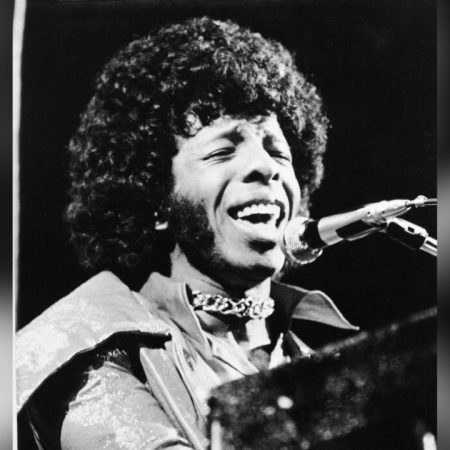In The Groove: Remembering Sly Stone through your voicemails & favorite songs
Following the loss of musical genius Sly Stone, I asked for your voicemails to remember him and to share your favorite songs from his catalog. You did not disappoint! There’s quite a few of your picks in the show today, so hopefully you can hear your voice reflected on Detroit public radio — just the way it should be! There’s also new music from Stereolab, Smerz and more.
Check the playlist below and listen to the episode for two weeks after it airs using the player above.
In The Groove with Ryan Patrick Hooper playlist for June 11, 2025
- “Looking For You” – Nino Ferrer
- “Roll Your Daddy Right” – John Lee Hooker
- “Nimerudi (Malcolm Catto / The Heliocentrics Remix)” – Goat, Mc Yallah, Malcolm Catto & The Heliocentrics
- “Conocerla (Amantes Del Futuro Edit)” – Reyna Tropical & AMANTES DEL FUTURO
- “Mescalero” – Cochemea
- “Vento a Favor (Instrumental)” – Sessa
- “Dance to the Music (John Luongo Dance Remix)” – Sly & The Family Stone
- “Shadrach” – Beastie Boys
- “People Everyday (Metamorphosis Mix)” – Arrested Development
- “Rhythm Nation” – Janet Jackson
- “Because I Got It Like That” – Jungle Brothers
- “The Devil & Mister Jones (Adrian Sherwood Reconstruction)” – Spoon
- “Bam Bam” – Sister Nancy
- “Police and Thieves” – Lee “Scratch” Perry, Bob Riddim & Xana Romeo
- “Whirlpool Dub (Adrian Sherwood Reset in Dub Version)” – Panda Bear, Sonic Boom & Adrian Sherwood
- “Caroline, No” – Beach Boys
- “Parabéns” – Marcos Valle
- “You Can Do It (Baby) [feat. George Benson]” – Nuyorican Soul
- “Everybody Is a Star (Single Version)” – Sly & The Family Stone
- “Que Sera, Sera (Whatever Will Be, Will Be)” – Sly & The Family Stone
- “Melodie Is a Wound” – Stereolab
- “Can’t Keep Checking My Phone” – Unknown Mortal Orchestra
- “Bloodlines” – Franc Moody
- “Love and Hate in a Different Time (Kerri Chandler Remix)” – Gabriels
- “Roll the dice” – Smerz
- “Lost Without (feat. Seinabo Sey)” – Kindness
- “Feels So Good” – Marcos Valle & Leon Ware
- “Lost Without You (feat. Dames Brown)” – Will Sessions & Amp Fiddler
- “Can’t Run But” – Paul Simon
- “Phoenix” – Rhye
Listen to In the Groove with host Ryan Patrick Hooper weekdays from noon-3 p.m. ET on 101.9 WDET or stream on-demand at wdet.org.
The post In The Groove: Remembering Sly Stone through your voicemails & favorite songs appeared first on WDET 101.9 FM.

